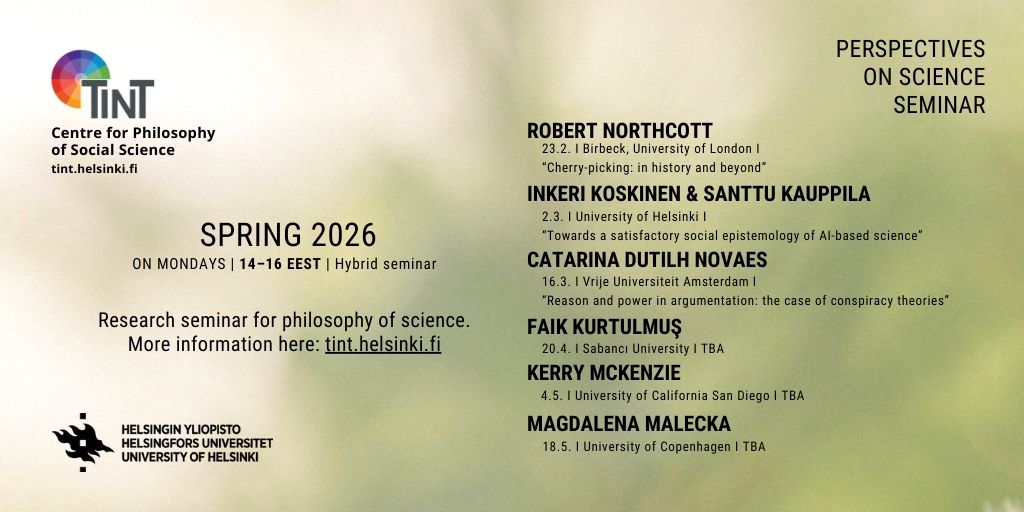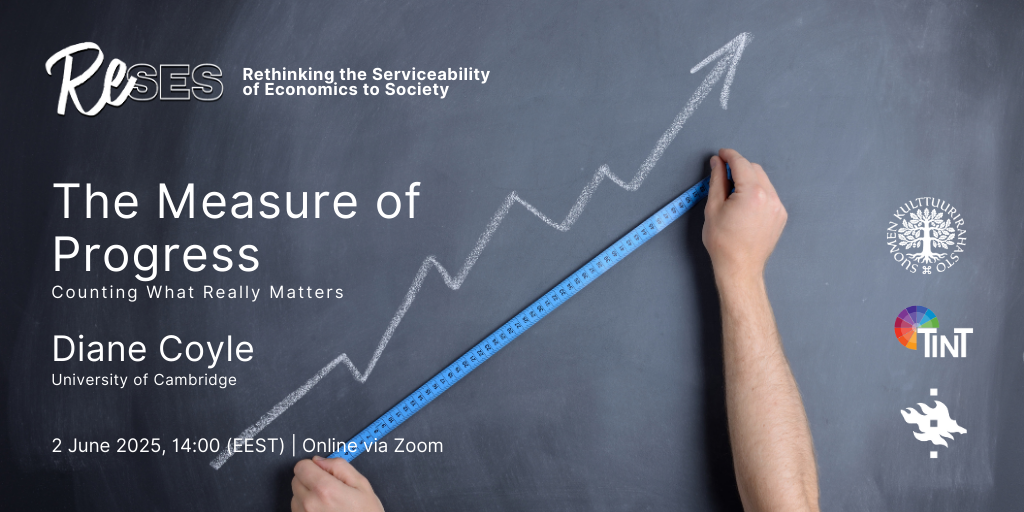Ajatuspaja Suomen Perusta julkaisi syyskuun lopussa pamfletin otsikolla ”Tutkimusta vai ideologiaa? Analyysi suomalaisesta tiederahoituksesta”. Teknillisen fysiikan DI Mika Meranon kirjoittaman pamfletin pääviestinä on, että Suomessa suunnataan veronmaksajien rahoja holtittomasti väärille aloille ja aiheisiin. Pureudun tässä blogitekstissä raportin keskeisiin ongelmiin, etenkin sen hyödyllisyyttä koskeviin ajatuksiin.
Raportti ottaa kritiikkinsä kohteeksi erityisesti humanistiset tieteet ja yhteiskuntatieteet. Humanistista tutkimusta kritisoidaan hyödyllisyyden puutteesta; yhteiskuntatieteitä, erityisesti sosiologiaa, kritisoidaan puolestaan liiankin suuresta poliittisuudesta. ”On selvää, että tietyillä tieteenaloilla on keksimääräistä [!] enemmän hankkeita, joiden yhteiskunnallinen hyöty on alhainen tai kyseenalainen”, Merano kirjoittaa.
Raportissa viitataan monessa kohtaa siihen, että julkisten tutkimusrahoittajien tulisi kohdentaa rahoitus hyödylliseksi katsottuihin aiheisiin. Yksi toimenpide-ehdotuksista on, että Suomen Akatemia luopuisi eri alojen asiantuntijapaneeleista ja sen sijaan vain ”rahoittaa kaikista parhaat tutkimukset”.
Tämä hyödyn mittaaminen ja rahoituksen uudelleenjakoajatus ei ole niin yksinkertainen kuin millaisena kirjoittaja sen esittää. Raportin kirjoittajan toiveissa näyttää olevan, että julkisen tutkimusrahoituksen prioriteetit muuttuisivat tavalla, jossa ideologinen huuhaatutkimus katoaisi ja jättäisi jäljelle vain oikean, rehellisen tutkimuksen. Ehdotuksen ongelma on kuitenkin siinä, että kirjoittaja ei kykene tarjoamaan nykyisen järjestelmän tilalle muuta kuin toisenlaisen ideologian. Hänen korostamansa hyödyllisyys kätkee sisäänsä paljon politiikkaa. Sen nostaminen entistä suuremmaksi rahoituskriteeriksi on poliittisesti hyvin arveluttava, tieteellisen autonomian näkökulmasta pelottavakin vaihtoehto.
Arvovapaan tieteen myytti
Hyviä uutisia alkuun: raportti ei ole kokonaan tiedevastainen. Sen mukaan tiede on tärkeä asia. Kirjoittajalta löytyy sympatiaa myös ihmistieteelliselle tutkimukselle. Hän tunnustaa esimerkiksi, että historiantutkimus tai kielitiede kykenevät lisäämään inhimillistä ymmärtämystä ja olemaan monin tavoin hyödyllisiä.
Samalla kirjoittajalla on silti taustalla vahva positivistinen tieteenihanne. Tämän ihanteen mukaan on olemassa ”oikeaa” tiedettä, joka ei ole riippuvaista poliittisista agendoista, ja joka paljastaa todellisuuden ”sellaisena kuin se on”. Samalla Meranon mukaan tietyillä tutkimusaloilla tuotettu tutkimus on ”agendallista tiedettä”, jossa tutkijoiden arvovalinnat vaikuttavat haitallisella tavalla tutkimuksen sisältöön. Hän jaottelee eri tiedeyhteisöjä ja tieteenaloja tämän jaottelun kautta.
Raportti korostaa, että on tärkeää pitää yllä ajatusta tieteen arvovaltaisuudesta. Parhaiten tämä arvovaltaisuus onnistuu kirjoittajan mukaan silloin, kun tutkimusrahoitusta ei suunnata ”huuhaatutkimukseen” ja tutkijat pysyvät oman tieteenalansa asettamissa rajoissa. Analyysista puuttuu huomio siitä, että tieteenalat ovat jatkuvassa muutoksessa. Esimerkiksi tieteidenvälinen tutkimus haastaa jatkuvasti tieteenalojen välisiä raja-aitoja. Tieteidenvälisissä kohtaamisissa tutkijat tulevat luoneeksi myös uusia tieteenaloja ja tutkimustraditioita.
Yhtäältä Merano kritisoi osaa tieteenaloista, erityisesti sosiologiaa, siitä että he saattavat osallistua yhteiskunnan toimintaan liiankin aktiivisesti. Toisaalta samaan aikaan hän on harmissaan myös siitä, etteivät yliopistot tarjoa riittävästi eritaustaisille ihmisille mahdollisuuksia osallistua tasavertaisesti tiedettä koskevaan keskusteluun. Kritiikki jättää huomiotta sen, että yliopistoilla ja tutkimuslaitoksissa on tehty viimeisen kymmenen vuoden aikana paljon työtä tiedeviestinnän edistämiseksi ja luotu erilaisia keskustelutilaisuuksia ja -foorumeita. Tälle työlle on edelleenkin tarvetta.
Monet pamfletin keskeisistä väitteistä pohjaavat ajatukselle arvovapaasta tieteestä. Merano esittää, että osa tieteestä on objektiivista ja arvovapaata; osa taas puolueellista ja ideologiselle agendalle perustuvaa tiedettä. Tämä ajatus ei edusta nykyistä tieteenfilosofian valtavirta-ajattelua. Esimerkiksi Helen Longino, Sandra Harding, Philip Kitcher ja Elisabeth A. Lloyd ovat korostaneet, että kaikki tutkimus on pohjimmiltaan arvolatautunutta: se, miten tutkimusaiheet, -menetelmät ja tulkinnat valikoituvat, on seurausta myös yhteiskunnallisista prioriteeteista. Näillä vinoumilla voi olla merkittäviä yhteiskunnallisia seurauksia, sekä hyödyllisiä että haitallisia.
Sosiaalisten arvojen vaikutus ei siten ole välttämättä huono asia tai murenna luottamusta tieteeseen. Päinvastoin! Ajatuksena on, että, että arvojen roolin tai yhteiskunnallisen vaikutuksen tiedostamalla tutkijat voivat tehdä paremmin yhteiskunnallisesti vastuullista ja hyvällä tavalla vaikuttavaa tutkimusta. He voivat löytää aukkopaikkoja, joita emme vielä tunne kunnolla. Joskus nämä asiat voivat paljastaa paljon uutta ja auttaa uudenlaisen ymmärtämyksen kehittämisessä. Esimerkiksi Caroline Criado-Perezin kirjassa Näkymättömät naiset: Näin tilastot paljastavat miten maailma on suunniteltu miehille kuvataan, miten monilla elämänalueilla informaatio ei ole ollutkaan neutraalia, vaan sellaista, että se on sulkenut naiset ulos. Joskus näiden ilmiöiden ymmärtäminen vaatii uudenlaista kieltä ja käsitteistöä. Se, että tutkimusta tahdotaan Meranon ehdotuksen mukaisesti kaventaa tavalla, joka suosisi vain määrällisiä menetelmiä, tarkoittaisi, että emme saisi monista, monien ihmisten tärkeiksi katsomista asioista lainkaan tietoa.
Tutkimusrahoitus vaikuttaa keskeisesti siihen, miten ja mistä aiheista tieteellistä tutkimusta tuotetaan. Siksi raportin esittämiin vaatimuksiin ei tule suhtautua olankohautuksella. Sillä, kuka tutkimusta rahoittaa, mitä tutkimusta rahoitetaan, voi olla iso rooli siinä, mistä asioista saadaan ja ei saada tietoa. Esimerkiksi Naomi Oreskes kuvaa tuoreessa kirjassaan, kuinka Yhdysvalloissa puolustusteollisuuden tarjoama rahoitus hidasti ja muokkasi syvänmerentutkimuksen edistymistä. Tällä on puolestaan ollut suuri vaikutus siihen, miksi merten roolista ilmastonmuutoksessa tiedetään parhaillaan varsin vähän.
Hyödyllisen tutkimuksen monet kasvot
Suomen Perustan raportti kritisoi humanistisia tieteitä siitä, että ”humanistien tuottamaa tietoa ei monestikaan voi soveltaa käytäntöön”. Kirjoittaja toivoo, että tutkimusrahoitusta kohdennettaisiin vielä vahvemmin ”konkreettisia hyötyjä tuottavaan” STEM-alojen tutkimukseen. Mutta mitä nämä tutkimuksen konkreettiset hyödyt tarkalleen ottaen ovat? Tästä asiasta raportti vaikenee. Tutkimuksella voi kuitenkin olla monia eri hyötyjä, eri ihmisryhmille ja tilanteissa. Kuinka paljon kirjoittaja tarkoittaa taloudellista hyötyä? Kenelle hän tahtoo ja uskaltaa antaa hyödyllisyyden määrittelijän roolin?
Raportti vaikenee myös toisesta tärkeästä kysymyksestä: yhtäältä se esittää, että tarvitsemme tietoa poliittisen päätöksenteon tueksi. Mutta miten tämä tavoite on yhdistettävissä sen toiveen kanssa, että kirjoittajan toiveissa olisi kohdentaa rahoitus ensisijaisesti luonnontieteisiin ja teknisille aloille? Raportti saakin kysymään, millainen näkemys Suomen Perustalla on yhteiskuntatieteellisen tiedon käytöstä poliittisessa päätöksenteossa. Tämän raportin perusteella vaikuttaisi, että ainoa tutkimus, joka saattaa läpäistä seulan, on tutkimus joka esittää itsensä määrällisenä, neutraalina insinööritiedemäisenä luomuksena. Tämäkään ei ole ihan varmaa. Joka tapauksessa tällainen määritelmä sulkee ison osan poliittisen päätöksenteon kannalta merkittävästä yhteiskuntatieteellisestä tutkimuksesta ja tutkimushaaroista pois laskuista.
Hyödyllisyys ja akateeminen vapaus
Suomen Perustan julkaisema raportti esittää, että julkista tutkimusrahoitusta kannattaisi suunnata vielä nykyistäkin vahvemmin teknistieteellisille STEM-aloille (science, technology, engineering, mathematics). Tämä asetelma jättää huomiotta sen, että jo nykyisellään iso osa suomalaisesta tutkimusrahoituksesta on kohdennettu muualle kuin kulttuurin ja yhteiskunnan tutkimukseen. Esimerkiksi Suomen Akatemian kulttuurin ja yhteiskunnan toimikunnan, joka rahoittaa humanistista ja yhteiskunnallista tutkimusta, rahoitus on kaikista pienin kolmesta sen toimikunnasta, minkä lisäksi toimikunnan myöntöprosentit eri tutkimushakkeille ovat olleet myös kaikkein matalimmat. Tämä osoittaa, että julkista tutkimusrahoitusta kohdennetaan jo nyt vahvasti STEM-aloille.
Suomessa on totuttu ajattelemaan, että julkinen tutkimusrahoittaja ei ohjaa liian paljon tutkimuksen suuntaa. Rahoitusjärjestelmämme perustuu tutkijoiden ja muun yhteiskunnan väliseen luottamukseen, tieteellisten asiantuntijoiden kuulemiseen sekä ajatukseen siitä, että tutkijat ja tiedeyhteisöt toimivat parhaaksi katsomallaan tavalla isänmaan ja ihmiskunnan hyväksi, akateemisen vapauden sallimissa puitteissa.
Tällä hetkellä isona huolenaiheena on, että emme voi ottaa akateemista vapautta itsestäänselvyytenä. Iso osa humanistisen ja yhteiskunta-alan tutkijoista on hyvin riippuvaisia erilaisista projektiluontoisista tutkimusrahoituksista ja projektirahoituspätkistä. Siksi Meranon esittämä väite siitä, että ”rahoituksen vähentäminen ei vaikuta tieteen vapauteen mitenkään” on yksiselitteisesti valheellinen. Esimerkiksi Pohjoismaisessa ammattiliittojen yhteisraportissa varoitettiin vasta, että läpi pohjoismaiden akateeminen vapaus on uhattuna siksi, että taloudellisilla intresseillä on entistä suurempi rooli tutkimusrahoituksessa, ja rahoitus on sidottu entistä kiinteämmin hallituksen asettamiin ehtoihin tai kohdennettu tietyille aloille tai tutkimuksen tavoitteisiin. Tämä yhteispohjoismainen raportti varoittaa, että nämä kehitykset uhkaavat erityisesti kriittistä ja uteliaisuuteen perustuvaa tutkimusta. Samanaikaisesti se esittää, että tutkijoiden tulee voida kritisoida myös nykyistä poliittista järjestelmää ilman pelkoa seurauksista, eikä yliopistoja tulisi asettaa enää nykyistä voimakkaammalle poliittiselle kontrollille.
Vähän aikaa sitten uutisoitiin, että Suomi on pudonnut akateemisen vapauden määrää mittaavassa indeksissä 38 sijaa kahdessa vuodessa, ollen nyt sijalla 47. Suomen Perustan raportti ei sisällä ehdotuksia, jolla tätä ongelmaa voitaisiin ratkaista – päinvastoin.
Anita Välikangas työskentelee tutkijana TINTissä. Hänen väitöskirjansa käsittelee tutkimuksen yhteiskunnallista relevanssia ja tutkimuksen kykyä ratkaista aikamme suurimpia ongelmia. Väitöskirjaan voi tutustua täältä. Tekstin toimitus: Jani Raerinne


